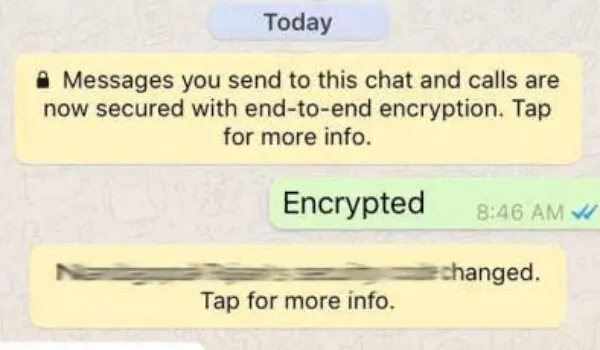
Wherever I use WhatsApp this question goes in my mind that WhatsApp claims about end-to-end data encryption all the time. The question is that Is really our data is encrypted end-to-end. And no body outside it sees it, or this is just a raw claim from WhatsApp about it’s services.

Yes, WhatsApp uses end-to-end encryption (E2EE) for all messages, calls, images, and videos sent over its platform. End-to-end encryption ensures that only the sender and intended recipient(s) have access to the contents of messages or calls. This means that even WhatsApp cannot access the content of your messages.
Here’s how end-to-end encryption works on WhatsApp:
Encryption Keys: Each user is assigned a unique encryption key, which is saved on their device. When you send a message, it is encrypted using this key before being delivered to the recipient.
Transmission: The encrypted communication is transferred via the internet to WhatsApp’s server.
Recipient’s key: When the communication reaches the recipient’s device, it is decrypted with the recipient’s encryption key.
Secure Communication: Throughout the procedure, the message is encrypted and secure. Only the sender and recipient have access to the unencrypted data.
WhatsApp’s use of end-to-end encryption protects user privacy and security by guaranteeing that messages are neither intercepted or accessed by unauthorized parties, including WhatsApp and third parties.
However, while message content is encrypted, WhatsApp and its parent company, Facebook, may still have access to metadata such as sender and recipient names, timestamps, and group chat membership. Furthermore, end-to-end encryption does not provide protection against risks such as malware on users’ devices, phishing attacks, or unauthorized access if a device is compromised.